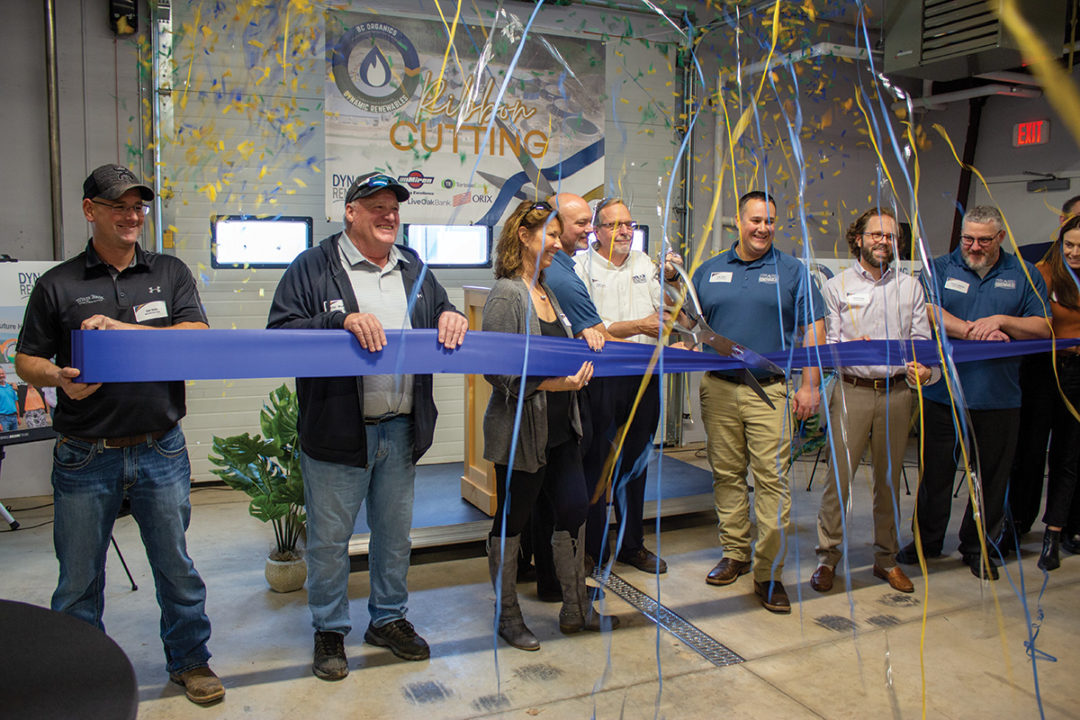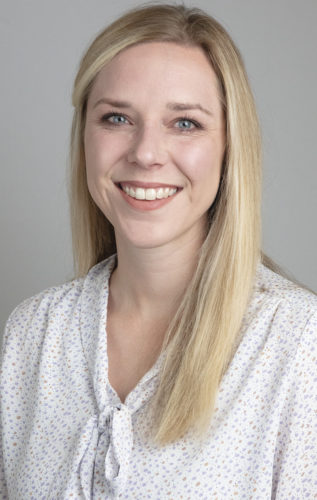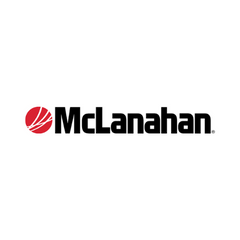Dan Wiese knows the importance of safe and sustainable practices for the future of his livelihood, and with a recent partnership to reduce manure application and improve environmental surroundings, the outlook of Wiese Brothers Farms is promising.
“When my family first started dairy farming, we treated our manure as an inconvenience, but in the last 15 years, we’ve valued our manure for what it is and treat it as a nutrient source,” Wiese says. “This is another attempt for us to use technology to help us manage nutrients and do a better job, be better stewards of the environment.”
Wiese Brothers Farms is one of 11 dairies working in partnership to provide manure for Wisconsin’s latest anaerobic digester, BC Organics owned and operated by Dynamic Renewables.
The Brown County plant, with 16 digesters on site, has the capabilities to process 900,000 gallons of manure daily.
 BC Organics is a 16-unit anaerobic digester in eastern Wisconsin. The site processes manure from 11 area dairy farmers. Photo courtesy of Digested Organics.
BC Organics is a 16-unit anaerobic digester in eastern Wisconsin. The site processes manure from 11 area dairy farmers. Photo courtesy of Digested Organics.
In addition, the plant creates 1.6 million British thermal units (Btus) of renewable natural gas each day (equivalent to 11,000 gallons of gasoline per day when used as compressed natural gas) and more than 400,000 gallons of clean water daily through the filtration technology provided by Digested Organics. The site also produces 135 tons of fiber bedding daily as a byproduct for use on participating farms.
“[This project] is the largest methane digester in the U.S., and it includes post-digestion water treatment, organic fertilizer and clean water,” says Dan Nemke, chief technology officer at Dynamic Renewables.
Unlike other methane digesters, the water filtration technology makes BC Organics unique.
The process uses several steps of filtration to convert digested manure into nutrient-rich concentrates and clean water.
“Before it runs through our system, it looks like a chocolate milk shake,” says Scott Crosby, project engineer at Digested Organics. “We first use ultrafiltration to remove suspended solids and then a combination of superfiltration, forward osmosis and reverse osmosis to make water clean enough to drink.”
 Superfiltration technology removes organic matter to create clean water as a byproduct of the anaerobic digesters. Photo courtesy of Digested Organics.
Superfiltration technology removes organic matter to create clean water as a byproduct of the anaerobic digesters. Photo courtesy of Digested Organics.
Altogether, the filtration systems make about 45 gallons of clean water for every 100 gallons of raw manure that went into the digesters, according to Crosby.
“As a final step, the filtered water is exposed to an ultraviolet light before it goes back to the farms as irrigation water or is discharged to a nearby stream,” he says.
For dairy producer Mike Gerrits, the water filtration technology enticed him and his family to become a partner farm.
“With this filtration technology, we don’t have to haul as much water to our fields,” Gerrits says. “We can haul drier material to the field, and that’s more encouraging than just simply digesting [the manure].”
In participating, the Gerrits family anticipates moving 40 million gallons of manure through the pipeline every year, minimizing truck hauling, noise and odor.
“There’s a lot of animal units per square mile here, and we all know we have to be sustainable now and in the future for the next generation,” Gerrits says. “We’re trying to be a little more environmentally friendly. With this partnership, we’re going to be able to use more cover crops, no-till all of our acres and have the potential to be carbon negative.”
Nemke agrees.
“Especially in this part of the country, there are some very progressive farmers who are looking to do really good things for their area and be more transparent with their practices,” he says. “Farmers are excellent stewards of the land to start with, but this project gives them more – more tools to work with and more opportunity to manage to the best of their abilities to help their community and the environment.”
 Rotary dryers are used to dry separated solids at BC Organics. The solids are then returned to the participating farms for use as bedding. Photo by Karen Lee.
Rotary dryers are used to dry separated solids at BC Organics. The solids are then returned to the participating farms for use as bedding. Photo by Karen Lee.
The project was authorized in fall 2017 following a feasibility study that evaluated phosphorus runoff into the Fox River watershed. Specifically, its goal was to examine anaerobic digestion with water treatment for the possibility of improving the sustainability of agriculture in Brown County.
Dynamic Renewables broke ground on the project in summer 2022 and commissioned the facility this winter.
“In ways that agriculture was affecting the watershed, the biggest pieces were to reduce the manure volume and control nutrients, which allows lower manure application rates, reduced tillage, reduced compaction and a greater use of cover crops,” Nemke says. “All of these things together help decrease the potential of phosphorus entering the surface water.”
Gerrits estimates that the digester with the water filtration technology will eliminate about 50% to 60% of the water that would otherwise be applied to the fields with little nutrient value.
“That is a great advantage for us because we’re not hauling all that water back into the field, and the water has value being used elsewhere,” Gerrits says.
Wiese agrees.
“Of our normal haul, 7 percent is solids, about 3 percent is actual fertilizer and the rest is water,” he says. “The fact that we can have some volume reduction and improved concentration of our manure is the number one goal overall. This opened my world to a whole new set of application methods and tools where I can grow cover crops a lot better.”
After the filtration process, the clean water discharged into the environment is cleaner than the water already there, Crosby says. That concept is where the entire community benefits.
“Really, this project isn't nearly as much about making money as it is about making less manure for the fields, which is an advantage for everyone,” Wiese says.
Wiese is a part of the third generation to dairy farm at Wiese Brothers Farms.
He led the business in the partnership with BC Organics. Unlike other participating farms, Wiese Brothers Farms constructed their own underground pipeline to deliver manure to the site. In doing so, Wiese created a path for the manure to be transported to the digester site but also left useful space aboveground.
“I wanted to go underground from point A to point B, so there’s redundancy for any future plans,” Wiese says.
For both Wiese and Gerrits, they have high hopes for this project in creating more sustainable dairy businesses as well as improving the environment that surrounds them.
“We have to do these things, like getting trucks off the road and reducing runoff, in order to sustain farming here in the next five years,” Gerrits says. “It’s a lot closer than we think.”
Wiese agrees.
“During this whole process, we’ve had great confidence and excitement [about the possibilities and potential], but we’ve also been cautious at the same time because we don’t know what exactly our reduction looks like yet,” he says. “The question is, ‘What is going to happen?’”
Time will tell as the participating farms of BC Organics see the return on this investment.
 Dynamic Renewables CEO Duane Toenges speaks during the ribbon cutting ceremony of BC Organics Nov. 10 in Brown County, Wisconsin. Photo by Karen Lee.
Dynamic Renewables CEO Duane Toenges speaks during the ribbon cutting ceremony of BC Organics Nov. 10 in Brown County, Wisconsin. Photo by Karen Lee.







